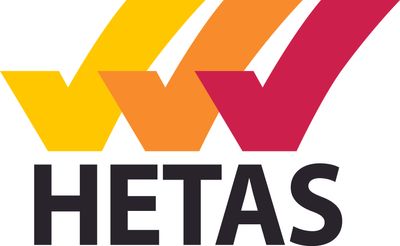Nearly one in ten wood burning stove owners fail to test CO alarms
Published:
Read Time: 3 mins
New research comes as concern grows over the sale of counterfeit CO alarms during Carbon Monoxide Awareness Week (18-24th November)
Under embargo, 18th November 2024, UK: New research from a government adviser, promoting the highest standards in solid fuel appliance usage, has found that despite 98% of wood burning stove owners having a CO alarm fitted, close to one in ten have either never tested it, they can’t remember, or it has been over a year since they last checked that the alarm works.
These findings have been released by not-for-profit, HETAS, during CO Awareness Week (18 – 24th November) with UK Fire and Rescue services advising to test CO alarms every month. According to latest figures from the Office for National Statistics the UK sees an average of over 60 deaths a year due to accidental exposure to carbon monoxide, with 45% occurring in the home.
The HETAS findings on CO alarm testing also follow growing concern across the solid fuel and energy industry of the rising sale of counterfeit Carbon Monoxide alarms. Sources such as consumer champion, Which? tested over 1,000 unbranded CO alarms, sold in the UK mainly through ecommerce sites, which fail to detect the gas and sound the alarm under British Standard CO detection tests. Further tests by Which? found that some of these alarms work on the first CO detection test but then develop critical faults.
Alan Young, HETAS Compliance Manager said: “Counterfeit CO alarms are non-certified, not fit for purpose, and are a cause of growing concern for consumer safety. It is an ongoing problem which consumers need to be aware of.
“To ensure your CO alarm is genuine and certified, ensure to purchase it from a trusted, reputable and well-known retailer. Check that it carries the correct CE and UKCA marks - as often the design proportions are wrong on the back of the alarm - and that it mentions (BS) EN 50291-1 or CO reaction thresholds. Some have only two LED indicators rather than three, and often come with user manuals which contain contradictory and unclear information, and with almost all missing basic packaging package and alarm label requirements such as lifespan, storage conditions and warnings about acute effects.”
“Ensuring you have a British Standard CO alarm installed is essential for safety, counterfeit alarms can be as dangerous as having no alarm at all. Regulations do vary across the UK, but there is common ground in legislation on having a CO alarm installed in any living space with a fuel appliance. If you are tenant, legislation requires your landlord to have fitted and tested both smoke and CO alarms at the beginning of your tenancy. Further advice for homeowners, tenants and landlords is available through our website as well as bodies such as the NRLA.”
Bruce Allen, CEO of HETAS, added: “If a wood burning stove is not properly installed, maintained or ventilated then CO can build up in the home or wherever the appliance is being used. So, using a trained and registered installer who meets appropriate standards is key for your safety, as is having a cleaner choice stove which burns at least 50% less particulate emissions than current requirements in UK Smoke Control Areas. HETAS provides a useful register on its website of certified technicians and appliances.
“Also, use Ready to Burn fuel and ensure to sweep your chimney regularly. Earlier this year we found that one in ten wood burner stove owners leave it years before sweeping their chimneys when you should sweep at least every six months if you burn wood.
“Finally, ensure that you have a compliant carbon monoxide alarm fitted in the same room as the appliance, and that it is frequently tested by pressing the button until the alarm sounds.”
Ends
Editors notes
About the HETAS research
The HETAS CO alarm testing research was conducted in October 2024 based on 1188 wood burning/solid fuel stove consumers.
In August 2024, an additional 182 wood burning/solid fuel stove consumers were surveyed on their appliance and chimney maintenance.
About HETAS
HETAS is an independent not-for-profit organisation promoting cleaner and safer choices to trade, retailers, and consumers, for the use of biomass and other solid fuels, appliances and associated technologies.
Working with local and national government, industry experts and innovators, HETAS provides expert advice, training and clear evidence-based information to businesses, consumers and regulators. HETAS prides itself on investing surplus funds into business areas that directly contribute to safely reducing particulate and carbon emissions for the benefit of the people and the environment.
For more information on HETAS, visit hetas.co.uk.



